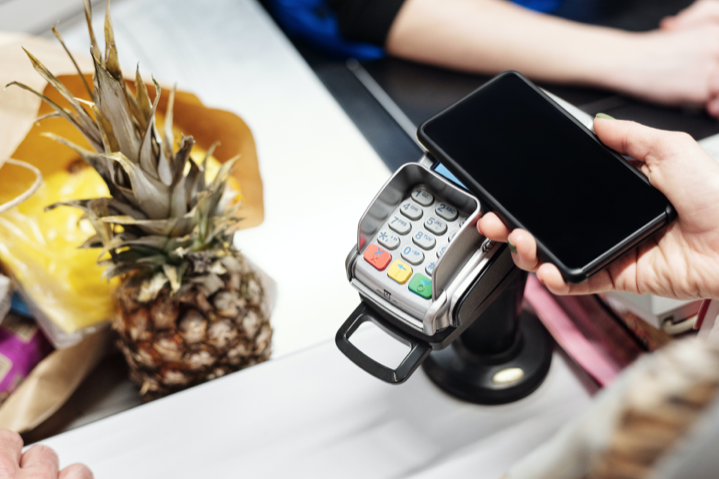Since the Hong Kong Innovation and Technology Commission (ITC) announced the Distance Business (D-Biz) Programme in April 2020, with funding provided by the Hong Kong Anti-Epidemic Fund, it has become clearer than ever that the Hong Kong government is serious about the digital transformation of local businesses. Applications opened on May 18th, with the Programme offering grants of 300,000 HKD for six-month projects. It also offered an additional 100,000 USD for re-training expenditures. The Programme was primarily rolled out to help assist businesses following the outbreak of CoViD-19. However, it also intends to help offline businesses with digital transformation that may help them remain resilient to any future crises.
To qualify for these grants, companies must digitally transform their business. However, the grants are available to those that have already done so. Digital transformation is defined according to a set list of eligibility criteria. These eligibility criteria are referred to as IT Solutions. They actually provide a good set of guidelines and paths for companies' digital transformation. Therefore in this article we'll discuss each relevant criteria in turn.
Online Businesses
A company is defined as an online business if it:
- Has established a web portal, mobile app, or other online channel with the aim of promoting its good and services. Companies can use either a subscription-based model or a custom-built eCommerce platform.
- Enables consumers to place orders over the Internet.
- Promotes this online portal through search engine promotion and/or other forms of digital advertisement such as social media promotion, eCoupons, loyalty programs, etc.
The online creation or proliferation of promotion materials, content, or assets (such as image, text, or video content used for marketing and promotion) does not qualify a business as operating online in and of itself.
We've talked about Taking Your Offline Business Online in 2020The Coronavirus has shown the vulnerability of purely offline businesses. Now is the time to start looking into taking your offline business online.the advantages of taking your offline business online already this year. The simple fact is that taking your business online means more flexibility and resilience to crises like the recent pandemic. Additionally it can open the way for better service and convenience for your customers. Finally, it also grants you access to a wider range of consumers at more different times.
Online Orders and Delivery, and Smart Self-Service Systems
Companies are considered to provide this IT Solution if they:
- Establish a web portal, mobile app, or other online channels for consumers to place orders for goods or services. Companies can use either a subscription-based model or a custom-built eCommerce platform.
- Adopt such technologies as enables them to perform end-to-end order resolution and delivery to designated locations, for example smart self-service systems (such as smart kiosks, smart vending machines, or smart lockers), or through integration with an eLogistics provider platform.
- Promote this online portal through search engine promotion and/or other forms of digital advertisement such as social media promotion, eCoupons, loyalty programs, etc.
The online creation or proliferation of promotion materials, content, or assets (such as image, text, or video content used for marketing and promotion) for takeout or similar services does not qualify a business as running online orders, delivery, or smart self-service systems in and of itself.
This IT Solution describes an online-enabled business model most familiar to us as consumers as that used by food and beverage (F&B) industry. Food delivery (or "Waimai" in China, where this kind of service has become ubiquitous) has enabled many smaller or out-of-the-way F&B businesses to access a greater audience and serve more customers than they previously had capacity to host. Offline delivery services meanwhile rely on unpopular and frequently ineffective leafletting and other campaigns to spread word about a business. Online allows delivery options to be provided to consumers hassle-free, on request. Recently, this has expanded beyond dedicated food delivery portals where many restaurants compete. Many restaurants now use dedicated apps and Mini-Programs within more popular apps. This further widens customer access and providing greater platform control to the business in question.
Online Customer Services & Engagement, and Digital Customer Experience Enhancement
The ITC defines a company as providing Online Customer Services & Engagement if it:
- Enables the placement of orders for services that take place over the Internet, such as reservations and appointment bookings.
- Promotes its online portal through search engine promotion and/or other forms of digital advertisement such as social media promotion, eCoupons, loyalty programs, etc.
The online creation or proliferation of promotion materials, content, or assets (such as image, text, or video content used for marketing and promotion) for customer services does not qualify a business as operating online customer services and engagement in and of itself.
Meanwhile, the ITC defines a company as providing Digital Customer Experience Enhancement if it uses digital or Internet technologies to improve customer service experience and engagement. These technologies include but are not limited to:
- 24/7 Chatbot customer service support
- Enhanced product or service experience via Augmented Reality (AR), Virtual Reality (VR), or Mixed Reality (MR) technologies, or Digital Twin technology
- Digital data analytics with the goal of improving customer experience
These two IT Solutions focus on enhancing customer experience. The focus is on positive, convenient interactions between customers and businesses. Certainly this is an area which many brands are actively pursuing. Therefore it may be wise not to fall behind on this front. Otherwise customers may become dissatisfied with offline businesses and their lack of convenience in comparison. Additionally, this offers the opportunity to get ahead of the pack yourself. You can do this by providing services tailored to customer needs that perhaps no competitor yet offers. This helps good service and pleasant experiences becoming associated with your brand in your customers' minds.
Digital Payment/Mobile Point of Sale
The ITC defines a company as providing this IT Solution if it:
- Provides online and/or physical stores with multiple digital payment channels, e.g. digital payment gateways or mobile Point-of-Sales (POS).
- Is able to set up a company's digital payment or mobile POS in a single setup session and provides the necessary hardware/equipment.
The use of digital means or the Internet to charge transaction/handling fees or equivalents is not enough by itself to qualify a business as providing a digital payment/mobile POS.
Another customer convenience-oriented IT Solution, digital payments are becoming increasingly popular and a more common customer expectation. Many brands also find that digital cashflow is more convenient than cash.












